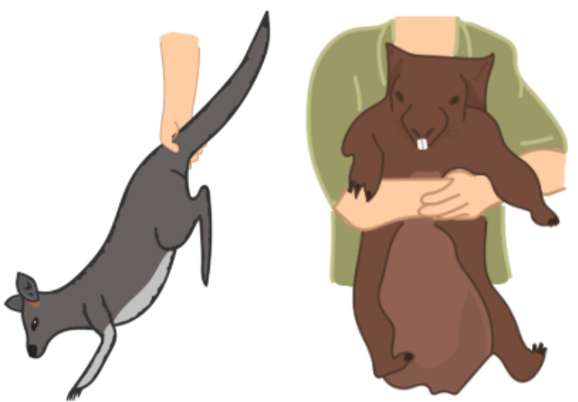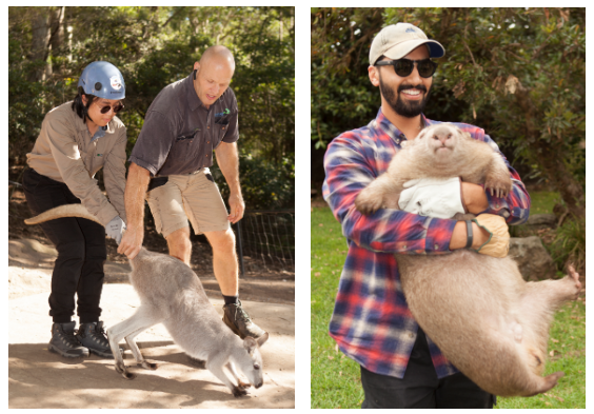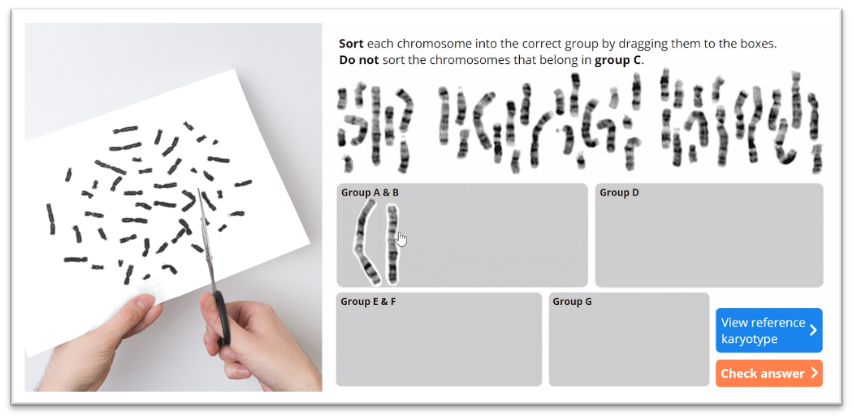Recently the Postgraduate Learning Design (PGLD) team and the School of Life Sciences put the UTS Learning for a Lifetime initiative into action. Together we co-designed four microcredentials for learners seeking a flexible, highly specialised, university-level professional development opportunity.
As can be expected from PGLD, each subject incorporated audio-visual content, interactive elements with real world case studies and a variety of guest speakers from the scientific community. Using a blended delivery approach, participants had regular opportunities to meet with lecturers and hear from experts including cytogeneticists, hospital scientists and a range of researchers from UTS and industry. One of the subjects even included a two-day workshop giving participants rare hands-on experience with Australian wildlife.
Micro 1: Wildlife Field Techniques – Animal Handling and Survey Methods
Led by Professor Jonathan Webb, a UTS wildlife ecologist and Craig Adams, a sought-after snake safety expert from the Australian Reptile Park, participants built skills in identifying and handling wildlife, managing risk and surveying sites before attending a two-day hands-on workshop at Shoalhaven Zoo.
This subject provided a rare professional development opportunity for individuals from a range of industries including wildlife rehabilitation, construction, engineering and even the Rural Fire Service.


Micro 2: Diagnostic cytogenetics
Cytogeneticists have the important role of detecting abnormalities in chromosome structure and composition associated with a growing number of diseases.
By far the most important skill is arranging the 23 pairs of chromosomes into a standardised format called a karyotype. In the classroom, this activity traditionally involved learners cutting out 46 tiny pieces of paper, a frustratingly slow activity that learners disliked. PGLD created an online equivalent of this process so students could practise on a number of examples and receive instant feedback.

This subject was developed in close consultation with working hospital scientists and cytogeneticists. The Pathology Department at the Prince of Wales Hospital in Randwick provided a large number of (de-identified) case studies which made for a truly authentic online learning experience for many participants who had not encountered such specialised pathology results. For example, FISH (Fluorescence in situ hybridization – example below) is a technology that enables scientists to visualise genetic abnormalities more easily (see below).

Micro 3: Clinical trials (Evidence and Design)
Full of debate, real world cases and access to scientists currently conducting clinical trials, this subject was developed in response to a need for researchers and practitioners to understand the guidelines and processes in designing robust and ethical clinical trials. Now, more than ever, we need the skills to distinguish between good evidence and false claims.
From the Babylonian era (when the earliest clinical trial was recorded) to current COVID-19 vaccine trials, participants are given numerous opportunities to critically analyse the strengths and weaknesses of trial design and to practise scrutinising results.

Micro 4: Genomics and precision medicine
Precision medicine is revolutionising healthcare. Our genetic information can now be used to transform diagnosis, treatment and even prevent disease. In this subject, participants are asked to shift their thinking about medicine from a ‘one size fits all’ approach, to one that is finely tuned to our genetics, environment and lifestyle.
Participants start with a genetics refresher before learning about the key milestones and challenges in this fascinating field. A range of inspirational (and sometimes devastating) case studies are featured, including 7 year old Alan whose family turned to genomics to keep his life-threatening immune disorder at bay.
A series of interviews with researchers at the forefront of precision medicine offer our learners cutting-edge industry insight. Dr Samuel Brennan from GenieUs Genomic, an Australian company working to produce precision medicines for neurological disorders like Amyotrophic lateral sclerosis (ALS), provides a real-world perspective.
These exciting new microcredentials from the Faculty of Science illuminate how UTS partners with industry to offer real-world, relevant and current professional development opportunities that embrace and promote Learning for a Lifetime.
